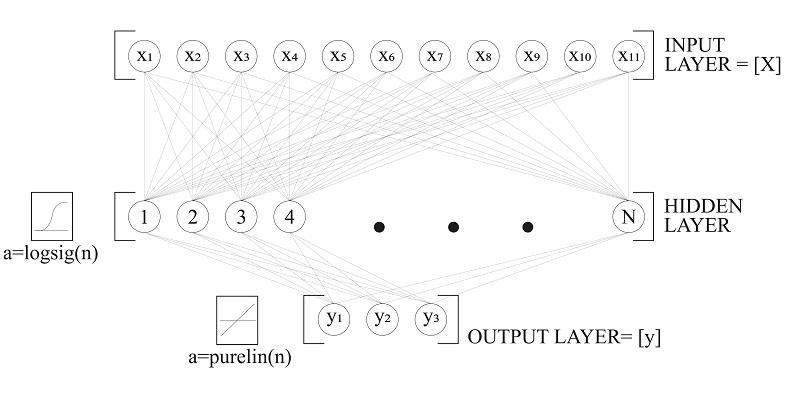Directions for improving the international legal regulation of the support program for the transfer of innovations and technologies "Horizon Europe"
DOI:
https://doi.org/10.15587/1729-4061.2023.276747Keywords:
means of innovation support, "Horizon Europe" framework program, stimulation of technological renewal, reform of European legislationAbstract
This paper reports a study into the essence, levels, forms, principles, and types of means of innovative support, as well as the procedure for their provision, which are provided for by the framework agreement "Horizon Europe". A critical analysis of certain elements of this framework agreement was performed. The expediency of conducting scientific research on changing the international legal regulation of implementation of measures of innovative support within the framework program of the European Union "Horizon Europe" has been substantiated.
This study is aimed at forming the concept of improving the normative mechanisms of legal regulation of the implementation of means of innovative incentives within the framework of the law of the European Union. In addition, the issue of developing proposals to improve legal mechanisms for assessing the effectiveness of the implementation of previously provided means of support was investigated.
It is proved that the formation of an integral concept of supporting innovation processes within the framework of the temporary framework program has a destabilizing effect. A concept of improving the system of normative regulation of means of innovative support and technology transfer in the general system of EU legislation has been proposed. Within the framework of the proposed concept, the expediency of transferring part of the subject of legal regulation of the framework agreement "Horizon Europe" to acts of EU legislation of a higher level is substantiated. Also, a concept of improving the legal mechanisms for assessing the effectiveness of previously provided incentives for innovation and technology transfer has been formed. It is substantiated that such mechanisms should be based on the activities of an expert collegial body within the European Innovation Council.
The study results could be used in the formation of international regulations, for the appropriate regulation of these relations.
References
- Kastrinos, N., Weber, K. M. (2020). Sustainable development goals in the research and innovation policy of the European Union. Technological Forecasting and Social Change, 157, 120056. doi: https://doi.org/10.1016/j.techfore.2020.120056
- Orošnjak, M., Jocanović, M., Čavić, M., Karanović, V., Penčić, M. (2021). Industrial maintenance 4(.0) Horizon Europe: Consequences of the Iron Curtain and Energy-Based Maintenance. Journal of Cleaner Production, 314, 128034. doi: https://doi.org/10.1016/j.jclepro.2021.128034
- Abubakar, I., Plasencia, A., Bärnighausen, T., Froeschl, G., Burton, M., Cobelens, F. (2019). Horizon Europe: towards a European agenda for global health research and innovation. The Lancet, 393 (10178), 1272–1273. doi: https://doi.org/10.1016/s0140-6736(19)30287-9
- Hoerber, T. (2012). New horizons for Europe – A European Studies perspective on European space policy. Space Policy, 28 (2), 77–80. doi: https://doi.org/10.1016/j.spacepol.2012.02.013
- Mulier, K., Samarin, I. (2021). Sector heterogeneity and dynamic effects of innovation subsidies: Evidence from Horizon 2020. Research Policy, 50 (10), 104346. doi: https://doi.org/10.1016/j.respol.2021.104346
- González Fernández, S., Kubus, R., Mascareñas Pérez-Iñigo, J. (2019). Innovation Ecosystems in the EU: Policy Evolution and Horizon Europe Proposal Case Study (the Actors’ Perspective). Sustainability, 11 (17), 4735. doi: https://doi.org/10.3390/su11174735
- Spreading excellence and widening participation impact report: H2020 results and outlook to Horizon Europe (2022). doi: https://doi.org/10.2848/30035
- Regulation (EU) 2021/695 of the European Parliament and of the Council of 28 April 2021 establishing Horizon Europe – the Framework Programme for Research and Innovation, laying down its rules for participation and dissemination, and repealing Regulations (EU) No. 1290/2013 and (EU) No 1291/2013 (Text with EEA relevance). doi: http://data.europa.eu/eli/reg/2021/695/oj
- Horizon Europe, open science (2021). Available at: https://op.europa.eu/en/web/eu-law-and-publications/publication-detail/-/publication/9570017e-cd82-11eb-ac72-01aa75ed71a1
- Regulation (EU) 2021/697 of the European Parliament and of the Council of 29 April 2021 establishing the European Defence Fund and repealing Regulation (EU) 2018/1092 (Text with EEA relevance). Available at: https://eur-lex.europa.eu/eli/reg/2021/697/oj

Downloads
Published
How to Cite
Issue
Section
License
Copyright (c) 2023 Oleksandr Davydiuk, Tetiana Duiunova, Hanna Shovkoplias, Olena Sivash, Svitlana Hlushchenko, Kateryna Lisohorova, Ivanna Maryniv

This work is licensed under a Creative Commons Attribution 4.0 International License.
The consolidation and conditions for the transfer of copyright (identification of authorship) is carried out in the License Agreement. In particular, the authors reserve the right to the authorship of their manuscript and transfer the first publication of this work to the journal under the terms of the Creative Commons CC BY license. At the same time, they have the right to conclude on their own additional agreements concerning the non-exclusive distribution of the work in the form in which it was published by this journal, but provided that the link to the first publication of the article in this journal is preserved.
A license agreement is a document in which the author warrants that he/she owns all copyright for the work (manuscript, article, etc.).
The authors, signing the License Agreement with TECHNOLOGY CENTER PC, have all rights to the further use of their work, provided that they link to our edition in which the work was published.
According to the terms of the License Agreement, the Publisher TECHNOLOGY CENTER PC does not take away your copyrights and receives permission from the authors to use and dissemination of the publication through the world's scientific resources (own electronic resources, scientometric databases, repositories, libraries, etc.).
In the absence of a signed License Agreement or in the absence of this agreement of identifiers allowing to identify the identity of the author, the editors have no right to work with the manuscript.
It is important to remember that there is another type of agreement between authors and publishers – when copyright is transferred from the authors to the publisher. In this case, the authors lose ownership of their work and may not use it in any way.








